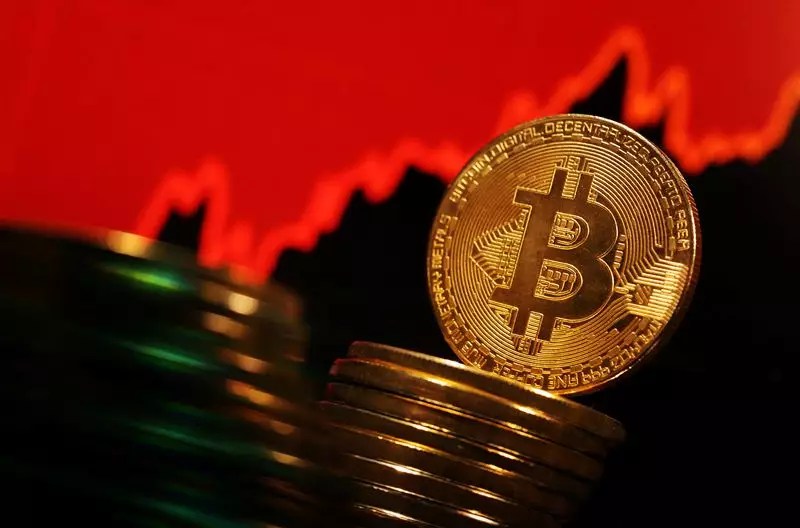In the volatile world of cryptocurrency, Bitcoin’s recent ascent highlights both its potential and the apprehensions that pervade the market. On a recent Wednesday, Bitcoin experienced a notable increase, rising by 1.8% to settle at approximately $93,936. This modest recovery followed a period of decline that had seen the cryptocurrency struggle to maintain its upward trajectory. Many traders had taken the opportunity to secure profits from a series of impressive rallies, which had left Bitcoin vying for the elusive $100,000 milestone yet again. This inability to break past a psychological barrier noticeably dampened market enthusiasm, reflecting a cautious sentiment among investors who are bracing for the implications of upcoming economic data.
The attention of investors was firmly fixed on several key U.S. economic indicators that could significantly influence future monetary policy. Among these was the much-anticipated PCE Price Index—the Federal Reserve’s preferred measure of inflation. As it was poised for release, expectations mounted concerning its implications for interest rate adjustments. Ominous clouds lingered over the market following the disclosure of the minutes from the Federal Reserve’s most recent meeting, showing a division among policymakers regarding the pace of rate cuts. These discussions bore significant weight, given the potential economic ramifications, particularly in a climate where inflation remained a focal issue. The forthcoming revision of the third-quarter gross domestic product (GDP) figures only added to the stakes, with indicators of a resilient economy potentially stalling aggressive rate cuts.
At the same time, the political landscape reverberated with additional uncertainties that weighed on investor confidence. The forthcoming administration under President-elect Donald Trump has sparked debates regarding its future policies on cryptocurrencies. Trump’s ambitions to position the U.S. as the “crypto capital” of the world hint at transformative regulatory approaches. Yet, the crypto community is still hungry for concrete policy details. Anticipation runs high around Trump’s appointees for key economic roles, particularly as both Scott Bessent and Howard Lutnick have expressed positivity towards digital assets. Their leadership might steer U.S. crypto policy toward a more favorable regulatory environment, but until specifics are articulated, uncertainty lingers.
In a strategic move that could reshape how cryptocurrencies are governed, reports suggest Trump may consider granting expanded authority to the Commodity Futures Trading Commission (CFTC) regarding the oversight of digital assets. This shift could lead to a significant reallocation of regulatory responsibilities, potentially shifting some authority away from the Securities and Exchange Commission (SEC). Outgoing SEC Chair Gary Gensler, known for his advocacy of the CFTC’s oversight of Bitcoin as a commodity, will step down at the inception of Trump’s presidency, paving the way for new regulatory frameworks that could either bolster or hinder crypto market stability depending on execution.
As Bitcoin’s recovery sparked renewed interest, other major altcoins mirrored this resurgence. Ethereum, the second-largest cryptocurrency by market capitalization, surged by 5% to approximately $3,488.35, indicating a broader optimism sweeping across the sector. Tokens such as XRP, Solana, Cardano, and Polygon also saw notable gains ranging from 3.5% to 9%, suggesting that the momentum extends beyond Bitcoin alone. The uptick in meme coins like Dogecoin, which rose by about 4%, further underscores the enthusiasm permeating the market, even amidst lingering uncertainties.
Ultimately, Bitcoin’s recent performance amid cautious trading conditions is a testament to its resilience. This digital asset reflects not only the speculative nature of its market but also the profound influence of economic indicators and geopolitical dynamics. As traders navigate the tumultuous waters of shifting regulations and economic forecasts, Bitcoin remains a pivotal player in the cryptocurrency sphere. With the advent of potentially new policies on the horizon and evolving economic conditions, the coming weeks could prove critical in determining whether Bitcoin consolidates its status or faces renewed challenges ahead.


Leave a Reply